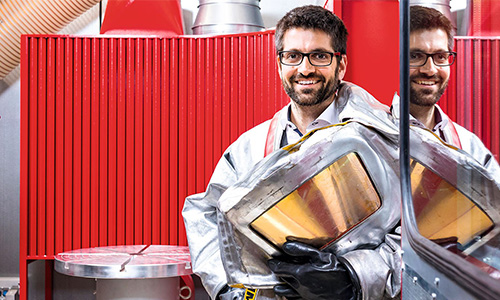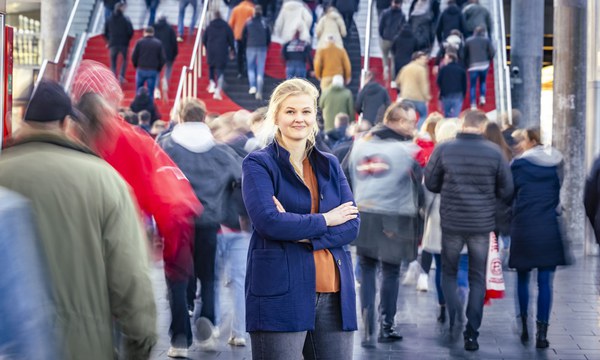Microbes, plants, soil, water, residual materials: how can resources be used more sustainably? In their search for solutions, Jülich researchers are working with nature’s building blocks. The goals: bio-based, competitive cycles and solutions for adapting to climate change.
Humanity is overconsuming Earth’s resources. Global warming is putting additional pressure on ecosystems. At the same time, the demand for food and other resources is rising as the global population grows. The United Nations projects that there will be 8.5 billion people in the world by 2030 and nearly 9.7 billion by 2050. Ensuring a good quality of life for all generations to come will require a fundamental shift towards a sustainable economy – one that relies on biological resources, protects nature and the climate, and follows the principles of the circular economy.

Bio-based solutions for a better world that conserves our finite natural resources. At Forschungszentrum Jülich, various disciplines tackle this task together – for a sustainable bioeconomy.
How can we secure human nutrition while transitioning industrial production to renewable raw materials? And what business models and regulatory frameworks will ensure that this transformation is both economically successful and sustainable? At Forschungszentrum Jülich, we develop the foundations and processes needed to make a sustainable bioeconomy work. Our scientists also collaborate closely across Jülich’s other research fields of energy and information, as successful bioeconomy concepts require interdisciplinary expertise.
The foundation for a green economy
Our research focuses on sectors that require significant adaptation as part of the bioeconomic transformation, such as industry and agriculture. We place great emphasis on open dialogue with business and society to deliver impactful solutions for the sustainable use of natural resources.
How exactly? Customized microorganisms and biological catalysts such as enzymes are important building blocks. They can convert plant biomass, excess CO2,and even plastic waste into valuable chemical substances. At Jülich, we develop automated processes to cultivate useful microbial strains, analyse the entire conversion process – from raw material to final product – and evaluate its sustainability.
Resilient crops for a changing climate
Our plant and agricultural research focuses on making crops more resilient to the impacts of climate change, such as increasing drought and aridity. Which species or varieties are particularly robust? And under which production systems do they deliver high yields despite stress? How can robotics and artificial intelligence help in this process? In the interest of sustainability, we focus on the multiple uses of resources. For example, a plant like the safflower can simultaneously produce high-quality oil for lubricants and fibres for packaging. And with agri-photovoltaics, farmland delivers double the yield: protecting crop harvests while generating green electricity from solar energy.
Digital geodata and simulation systems also play a key role in making agriculture and water management more resilient to climate extremes. Already today, digital geodata and simulation systems “made in Jülich” enable precise real-time forecasts of droughts or forecasts of water availability for agricultural land. Visit: https://wasser-monitor.de/
Data analysis is integral to the bioeconomy. Using computer-based methods and artificial intelligence, we analyse vast data sets to identify promising genes in plants and microorganisms or to optimize bioactive molecules – whether for plant breeding or for medical active ingredients. These insights can drive advancements in agriculture, industry, and medical applications – helping us make the most of Earth’s finite resources.
Model region BioökonomieREVIER
Innovative and circular: Jülich research results aim to find practical application in regional bioeconomies. Since 2010, we have been developing solution-oriented concepts in the Bioeconomy Science Center (BioSC) – in collaboration with regional partners.
The BioökonomieREVIER initiative established the idea of transforming the Rhenish lignite mining region – right on our doorstep – into a model for a bio-based economy. By leveraging regional strengths and innovation, we are reshaping this greenhouse gas-intensive economic system into a sustainable and globally recognized bioeconomy region. We believe that the principles applied here can help transform economic systems worldwide.
News on Bioeconomy
Institute
More on research
Copyright Headerimage: Forschungszentrum Jülich




